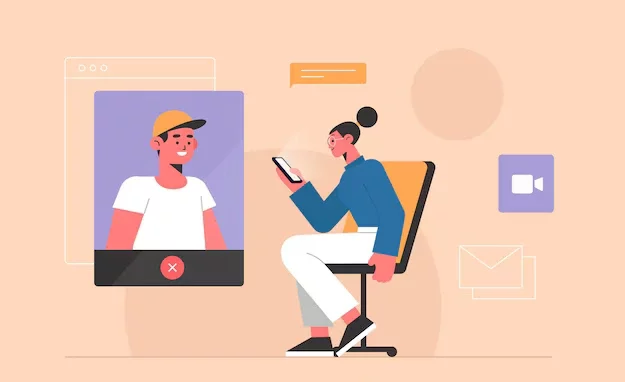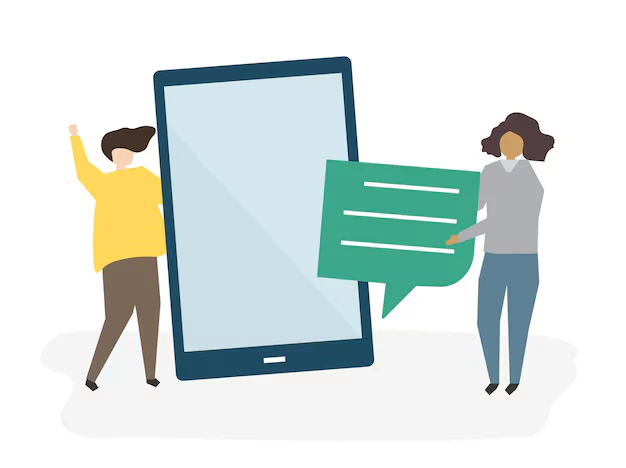WhatsApp sits at the centre of everyday life: quick check-ins with family, project updates, and last-minute plans. That same convenience attracts scammers. Their playbook now includes odd “verification” calls, urgent messages that sound official, phishing pages that mimic banks, and video feeds that look real for a few seconds but aren’t. One rushed tap can leak personal data, trigger financial loss, or open the door to identity misuse. The upside: once you understand how a WhatsApp video call scam typically unfolds and you know your first steps, you’re much harder to fool.
Protect Your Brand & Recover Revenue With Bytescare's Brand Protection software
How to Spot a Fake WhatsApp Video Call?
Telling a live call from a staged feed is tougher than it used to be, but a few reliable cues make the difference:
Audio and Video Don’t Quite Match
If the sentence ends before the lips do or the voice continues while the mouth freezes, you may be watching a pre-recorded clip or an AI-generated feed. That “half-beat off” rhythm is a common sign of a fake WhatsApp video call.
Movements Repeat or Feel Mechanical
Notice the same nod at the same moment, the same blink pattern, or a pose held far too long. Loops suggest it isn’t live. If you’re unsure, ask for a quick action—raise two fingers, turn left, say today’s date, and see whether the loop breaks. A WhatsApp fake video call often can’t keep up.
Lighting and Background Never React
Real rooms breathe. Shadows shift, screens flicker, a curtain moves when someone turns. When the lighting stays flat or the background looks pasted on, you’re not seeing a genuine live scene.
Hesitation on Simple Prompts
Give a small, time-boxed request: “Show your right hand,” “Tilt the camera toward the window,” “Read what’s on your watch.” Stalling or mismatched timing is a strong indication that the feed has been manipulated.
Glitches at Convenient Moments
Freezes and pixelation do happen on weak networks, but if quality collapses exactly when you ask for live verification, treat it as a red flag for a fake video call on WhatsApp. Combine this cue with the others before you trust what you’re seeing.
Background that Ignores Movement
If a scarf, plant, or curtain never shifts—no matter how the caller moves then the scene may be a static overlay rather than a live environment.
Why Would Someone Fake a Video Call on WhatsApp?

There are various reasons why someone might fake a video call on WhatsApp, ranging from harmless fake video call–pranks to more deceptive intentions. Understanding why people fake video calls helps you see both the ethical lines it crosses and the real-world risks it creates.
Dodging Awkward Conversations
Some people fake a call to look “busy” and avoid a tough chat or an invite they don’t want. It buys a minute of comfort, then comes back as confusion, hurt feelings, and bigger problems later.
Pranks that Go Too Far
Pre-timed clips can land a laugh once; after that, trust erodes. Friends who’ve been fooled once tend to second-guess you on genuine calls.
Image-building or Deception
Pretending to be in a high-stakes meeting or using a fake location to look important is a shortcut with a cost. In close relationships, it becomes story-building—“I was there, I met them”—when none of it happened.
Scams and Fraud
This is serious play. Criminals impersonate a relative, colleague, or adviser to push for money or sensitive information. In that script, the WhatsApp video call scam is the hook; urgency is the pressure; your goodwill is the target.
Protect Your Brand & Recover Revenue With Bytescare's Brand Protection software
Common Types of WhatsApp Scams
Impersonation Scams
A criminal copies a name and photo, then sends a “new number” message or drops in with urgency, saying, “Need a quick transfer,” or “Share the OTP so I can log in.” That push to act immediately is the tell. Among the most common types of WhatsApp scams, this one succeeds by leaning on trust and panic.
Prize or Lottery Scams
“You’ve won” arrives with confetti language and a “release fee.” Real rewards don’t charge you to receive them, and they don’t ask for bank details in chat. If a win is genuine, you can verify it through official channels without paying up front.
Phishing Links
Bank notice-seeming messages, KYC updates, delivery errors, account unlocks and so on frequently result in look-alike pages that collect logins, card numbers or OTPs. If something matters, open the official app or website yourself and handle the task there.
OTP Fraud
Someone posing as “support” claims your account is at risk and asks for your one-time password. No legitimate service requests your OTP by call or chat. Refuse, end the conversation, and secure your account.
Job-offer Traps
“Easy work, high pay” flips quickly to “training deposits,” tool purchases, or requests for sensitive documents. Genuine employers don’t charge candidates to get hired.
Steps to Protect Yourself from WhatsApp Scams
Enable Two-Step Verification
Turn on the six-digit PIN in Settings → Account → Two-step verification. Add a recovery email so you can reset the PIN if needed. Treat this PIN as confidential—never share it with anyone, even if they claim to be “support.” Remember: the SMS OTP and your two-step PIN are different; both must stay private.
Limit Who Can See Your Personal Info
Go to Settings → Privacy and set Last Seen and Online, Profile Photo, About, and Status to My Contacts (or Nobody) in “Groups,” switch invites to My Contacts or My Contacts Except to stop strangers from adding you. Hiding these signals reduces the details scammers use to craft convincing messages.
Block and Report Suspicious Numbers
If a caller pressures you, asks for OTPs, or refuses a simple live check, end the chat. Open the conversation → tap the name/number → choose Block and Report. Also enable Privacy → Calls → Silence unknown callers to auto-mute first-time contacts while still logging missed attempts.
Avoid Clicking Unknown Links
Don’t open links from unknown senders or from known contacts if the tone feels “off.” Instead, type the official website address yourself or open the trusted app directly. Never enter OTPs, card numbers, or passwords on pages reached from a chat link, no matter how “official” they look.
Keep WhatsApp Updated
Update WhatsApp and your phone’s operating system regularly; security patches close the holes scammers try to exploit. In WhatsApp, review linked devices and sign out of anything you don’t recognise. Keep a screen lock on your device and avoid installing apps suggested by strangers during a call or chat.
Protect Your Brand & Recover Revenue With Bytescare's Brand Protection software
What to Do If You’ve Been Scammed

Move fast and work through this list:
- Block and report the number inside WhatsApp.
- Warn close contacts in case your name, photo, or account was copied.
- Change passwords for any account you mentioned or accessed; enable two-factor authentication everywhere.
- Make sure that you call your bank and freeze your cards, charge disputes and monitor transactions in case you have used the same bank or card information.
- Save evidence: screenshots, call logs, dates, times, transaction IDs, and any phone numbers or usernames.
- File a cybercrime complaint with your local authority.
- Uninstall any “support” apps a stranger told you to install; run a trusted security scan on your device.
- If you manage a brand or public page, step up monitoring so impersonation gets caught and removed quickly.
Risks and Ethical Considerations of Faking a WhatsApp Video Call

Breach of Trust
Deception erodes credibility at home and at work. Rebuilding it takes time, and some people won’t return to the level of trust you had before.
A Pathway to Fraud
What starts as a joke is easily recycled by scammers for impersonation scams. The same tricks turn a “prank” into real financial and personal harm.
Possible Legal Consequences
If you use manipulated or deepfake video to mislead or help someone commit wrongdoing, you could face civil claims and, in many places, criminal charges—outcomes depend on local law and the damage caused.
Erosion of Digital Trust
With the advancement of fakes available in synthetic form, individuals begin to question even authentic calls. Such indecisiveness is slowing down daily team effort and customer service, and it hurts everyone.
What’s Next?
Yes, you can stage a call, but the fallout is real: broken trust, strained relationships, and potential legal issues, especially when money or identity is involved. The smarter move is to be clear and honest about when you’re available and what your limits are. If you run a team or a public-facing brand, back that up with strong account security, regular checks for impersonation, and a fast, written plan for what to do the moment abuse shows up. That combination shuts down problems before they spread.
Protect your brand’s integrity with Bytescare’s Brand Protection Solutions. Our advanced system monitors and defends your intellectual property against unauthorised use, phishing, and trademark infringement.Elevate your brand reputation and security—contact us today for proactive protection and a secure digital future.
The Most Widely Used Brand Protection Software
Find, track, and remove counterfeit listings and sellers with Bytescare Brand Protection software

FAQs
How do I block scam calls on WhatsApp?
Open the chat, tap the profile, choose Block, then Report. Secure the privacy and activate the two-step verification to get additional security. In case the caller asserted he was a friend, send that person a message in a new chat to verify that it was him or her.
Can scammers hack my WhatsApp just by calling me?
A regular call alone can’t do it. Most takeovers happen when someone shares their OTP or installs a shady “support” app. Don’t share codes, avoid untrusted tools, and keep the app and your phone updated. If anything feels off, log out of linked devices and reset your PIN.
Can a scammer fake a video call on WhatsApp?
Yes—scammers can fake a WhatsApp video call. Watch for lips out of sync with audio, looping gestures, or a delay when you ask for a quick action like “show two fingers” or “turn the camera to the window.”
Is WhatsApp safe for private video calls?
WhatsApp has employed end-to-end encryption in video call conversations so that only the members can see the content. Nevertheless, users are advised to be cautious enough and authenticate identities to prevent any form of scam.
How do you know the person you are talking to is real or fake?
Do a quick “reality check.” Ask them to do something on camera right now (say today’s date, tilt the phone, show a specific object). Follow up with a question only they’d know, then cross-check basics—message them on a known number, look for consistent social profiles, and reverse-image-search the profile photo if you’re unsure. If anything feels off, end the chat and verify through another channel.
How do you identify fake calls online?
Watch for small, human “tells.” If the lips don’t match the voice, gestures repeat or freeze, or the background and lighting never react to movement, treat it as suspect. Ask for a quick, specific action (say today’s date, tilt the camera, show an object). A stall or sudden “convenient” glitch is a red flag. And if the whole exchange feels off—trust your gut, end the call, and verify through another channel.
Ready to Secure Your Online Presence?
You are at the right place, contact us to know more.

